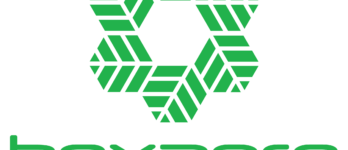
udu finds the data our customers didn’t know existed, adds the structure it doesn’t have, enriches it in ways they might not imagine, and delivers it to their analytics systems as a service in any format on any schedule.

Frank Boosman
Name: udu, Inc.
Location: Raleigh, NC, with development offices in Durham, NC
Website: http://www.udu.co/
Product / Service Offering: DaaS that finds, structures, enriches, and delivers data on demand to enterprises of all types
Co-founder Interviewed: Frank Boosman, VP Product Marketing
Other Key Management Team Members: Rett Crocker, CEO / CTO; Charles Shook, VP Corporate Development; Andy Kell, VP Finance
This article is part of our Business Startup Spotlight series featuring entrepreneurs and their companies. We hope that these founders’ interviews will inspire and motivate you as you undertake your own entrepreneurial journey.
Tell us a little about yourself with a focus on what motivates you?
I came up through the product marketing and business development ranks in Silicon Valley. Most of the software and Internet businesses I worked for were startups or still in startup stage. I was the original product manager for Adobe Acrobat, which you probably use daily, and was a co-creator of Tom Clancy’s Rainbow Six, which was the first realistic first-person game of its type.
In terms of what motivates me, I’d say that ultimately, what gets me out of bed every morning and excited to do my job, is my co-workers. I co-founded udu with Rett, Charles, and Andy because I liked, trusted, and respected them. I knew I would be happy working with them daily. Because of the relationship we have and the path we’ve gone down, I always feel like we can handle any challenge that we face. I don’t know how entrepreneurs do it when they don’t have those types of relationships with their co-founders.
Partner Salary Agreement – 4 Questions to Mitigate Startup Failure
When did you establish your company and where did the idea originate?
We founded udu (“you do”) in 2013. The original idea started, in part, with asking ourselves some fundamental questions about the nature of apps. Why are they as large as they are? How small could they possibly be? Why don’t they do much in terms of collaboration? Could vast numbers of tiny apps cooperate and even compete to solve big problems? Answering these questions led us down the road we are on now.
What need or needs does your company seek to fill for its customers?
We find the data our customers didn’t know existed, add the structure it doesn’t have, enrich it in ways they might not imagine, and deliver it to their analytics systems as a service in any format on any schedule. Our early successes are primarily in defense, real estate, and finance. Some of the applications of udu include competitive research, database synthesis, and lead generation. This list is growing all the time.
What is the one thing that sets your company apart from its competitors?
Although we are happy to license our underlying platform and support customers who want to create their own solutions, it is far more typical that we collaborate with customers to design custom solutions that meet their needs. I would say what is unusual about that is how quickly we can develop and deploy those solutions after the initial design process. Sometimes we have our first version ready for review within hours, but never more than days. This is because we typically find that our existing platform is already 99% or more of the way to any given solution. We need to just add a handful of small pieces to complete it. I think that is extraordinary for what we offer.
7 Steps to Assess Your Competitive Environment
What was the biggest challenge you faced while getting your company up and running, and how did you overcome it?
![]() Early on, a highly experienced entrepreneur who was a friend of mine told me we would have to let go of one of our co-founders. “Who?” I asked. “Oh, I don’t know, one of them. It always happens.” I didn’t believe him, but then we got into a situation where that was the case. It was incredibly difficult because the person in question was a close friend of mine. I wish I could tell you there was an easy answer; there isn’t.
Early on, a highly experienced entrepreneur who was a friend of mine told me we would have to let go of one of our co-founders. “Who?” I asked. “Oh, I don’t know, one of them. It always happens.” I didn’t believe him, but then we got into a situation where that was the case. It was incredibly difficult because the person in question was a close friend of mine. I wish I could tell you there was an easy answer; there isn’t.
To the entrepreneurs who face this challenge, all I can say is that if you’re in the hot seat of delivering that news, keep a level head, keep away from anything personal, and do everything you can to treat them fairly and with dignity, recognizing their contributions. Be prepared for some hard work ahead to rebuild that friendship.
Are there resources you have utilized that other founders might find compelling or useful?
Honestly, the issue is not finding the one right resource, but the fact there are so many, and there is so much noise these days.
What steps have you taken to secure funding for your company and what, if anything, would you do differently if you had to start over?
We have raised over $1 million in seed funding to date, all from angels, mostly local, with a few out of state and a couple from overseas.
As for doing something differently, hindsight is 20/20. I try to avoid that sort of thing, except in a useful, retrospective sense. We had to go through the learnings we did to get to where we are now. “The journey is the reward” may be clichéd, but it is true. If you see the journey as a terrible slog that leads to a pot of gold, you are likely to end up disappointed.
Looking for an Angel Investor? Try TurboFunder’s Find My Angel Investor!
Have there been any questions you have had as an entrepreneur of a fledgling startup that you had a particularly hard time finding the answers to?
For most things, I would say it is easy these days. Almost anything you want to find out is somewhere on the Internet. The one thing I would point to would be pricing models and contractual arrangements for high-cost, high-value B2B software and services. Companies in that line of business tend to be understandably protective of their models and regard them as proprietary.
To be fair, we do not publish pricing on our site. It is also true that when we share our model with prospective customers, it is incredibly simple and easy to understand. We have seen some complex licensing models out there and do not want to go down that path.
What challenges, if any, are you grappling with?
It is a challenge for most high-value B2B businesses to transition from what we call “Rolodex selling”, the founders going through their contact lists, to a more structured sales approach, including marketing-based demand generation. We are in the midst of that right now. It is going well, but we are definitely learning along the way.
What is the most helpful tip or “hack” you’ve ever learned, stumbled across, or been given?
I try to learn something fundamental from every place I work. Except in rare cases, that is nearly always a positive lesson. For example, John Warnock, the founder of Adobe, once told me, “The money has to be a happy accident.” By that he meant, if you were in it for the money, you were in it for the wrong reasons and you were likely to fail. That has always stuck with me.
Are you familiar with other startups you believe should be spotlighted? If so, we would like to hear from you. Tell us about them in the comments below!









